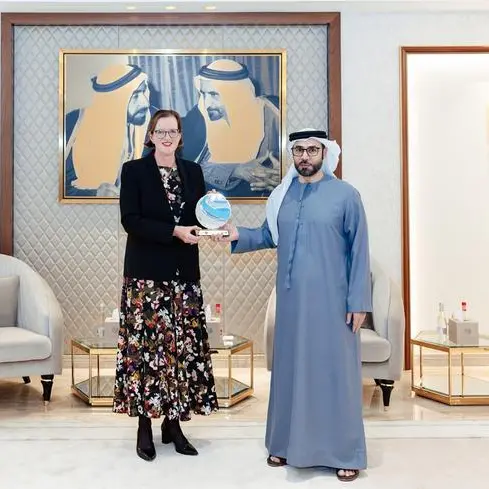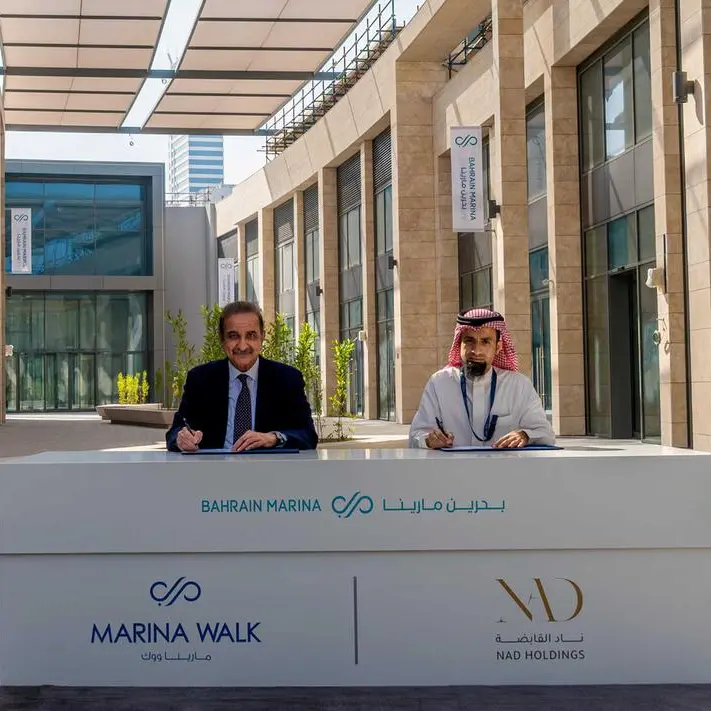A global survey released by HSBC today shows how sustainable finance is gaining momentum in the Middle East, with ‘values’ the main driver among of issuers of bonds, loans and other securities in the region.
The HSBC 2020 Sustainable Finance and Investing Survey also highlights how the Middle East sustainable finance market is at an earlier stage of development than markets such as Europe, Asia and North America, with some contrasting results between investors and issuers.
Among issuers in the Middle East, 93% say environmental and social (E&S) issues are important to them — but only 65% of investors feel that way (compared to the overall global average of over 90%). Within these majorities, the shares saying E&S issues are ‘very important’ are also lower than in other regions. Furthermore, just 7% of investors say they always take environmental, social and governance (ESG) factors into consideration in their investments and few support environmentally or socially desirable projects at the risk of lowering their returns.
However, it should be noted that a large share of investors in the Middle East (41%, more than anywhere else) are intending to develop firm-wide policies on responsible investing or on ESG issues. And among investors who already have these policies in place, very high numbers seek out material ESG issues when they invest and incorporate impact goals. Middle Eastern investors are also very optimistic about the benefits of ESG - more in this region than elsewhere see potential for ESG strategies to outperform.
Gareth Thomas, HSBC’s Regional Head of Global Banking for the Middle East, North Africa and Turkey (MENAT), said: “The results of the HSBC Sustainable Finance and Investing Survey reflect what we are seeing on the ground, with Middle East green and sustainable bond issuance so far this year up nearly 50% on total issuance in 2019. And 2019 saw nearly 60% growth on 2018. The green agenda is here to stay so it is imperative that investors and issuers in the Middle East engage on the topic to better understand how they can capture the economic as well as environmental and social benefits of more sustainable business models.”
The last few months has seen the region’s sustainable finance market deepen and become increasingly diversified. In September, Saudi Electricity Company raised US$1.3 billion in the first public USD-denominated green issuance from the Kingdom, which was followed just a few weeks later by Egypt issuing the region’s first sovereign green bond. Beyond the bond market, in July, Saudi Arabia’s Ministry of Finance raised US$258 million via the region’s first green Export Credit Agency loan.
Moral values are clearly influential in the region. When asked why they care about E&S issues, 62% of issuers and 47% of investors say ‘we believe it’s right’ — in each case, the strongest level globally.
The survey results also suggest that the global COVID-19 pandemic has accelerated engagement with ESG issues in the Middle East. Above average proportions of issuers (44% versus the 41% global average) and investors (30% versus 29%) now believe more strongly than before in the importance of becoming sustainable or considering ESG issues in investing.
The Middle East Sustainable Finance and Investing Survey can be accessed here:
https://gbm.hsbc.com/solutions/sustainable-financing/sfi-survey-middle-east
-Ends-
Media enquiries to:
Edward Moore
+971 4 423 6610
edward.j.moore@hsbc.com
About the HSBC Sustainable Financing & Investing Survey
HSBC’s Sustainable Financing and Investing Survey 2020 comprises responses from 2,000 capital market participants (1,000 issues and 1,000 investors) in 34 markets on their changing attitudes to sustainability issues. Research was conducted by GlobalCapital and Euromoney Insight for HSBC between July and August 2020. 150 issuers and 150 investors from the Middle East took part in the survey.
The global report and regional reports for Asia Pacific, Americas, Middle East and European be accessed here: http://gbm.hsbc.com/solutions/sustainable-financing
HSBC in the MENAT region
HSBC is the largest and most widely represented international banking organisation in the Middle East, North Africa and Turkey (MENAT), with a presence in nine countries across the region: Algeria, Bahrain, Egypt, Kuwait, Oman, Qatar, Saudi Arabia, Turkey and the United Arab Emirates. In Saudi Arabia, HSBC is a 29.2% shareholder of Saudi British Bank (SABB), and a 51% shareholder of HSBC Saudi Arabia for investment banking in the Kingdom.
This presence, the widest reach of any international bank in the region, comprises some 350 offices and around 9,500 employees. In the year ending 31st December 2019, HSBC in the MENAT region made adjusted profit before tax of US$1,611m.
HSBC climate commitments
HSBC last week announced an ambitious plan to prioritise financing and investment that supports the transition to a net zero global economy:
- Committing to align its financed emissions – the carbon emissions of its portfolio of customers – to the Paris Agreement goal to achieve net zero by 2050 or sooner.
- Supporting its customers in all sectors with between US$750bn and US$1 trillion of finance and investment by 2030 to help with their transition.
- Applying a climate lens to financing decisions.
- Unlocking new climate solutions by creating one of the world’s leading natural capital managers, creating a US$100m venture debt fund for CleanTech innovation, and launching a philanthropic programme to donate USD100m to bring new solutions to viability and scale
- Aiming to be net zero in its operations and supply chain by 2030.
Details of the plan can be accessed here: https://www.hsbc.com/media/media-releases/2020/hsbc-sets-out-ambition-to-build-a-net-zero-economy
HSBC’s History of Sustainable Finance
The bank’s ambitious climate declaration builds on its leadership in sustainable finance and addressing climate change.
- In 2017, HSBC pledged to provide US$100bn in sustainable financing and investment by 2025.
- In 2020, HSBC was named the World’s Best Bank for Sustainable Finance by Euromoney, which noted that “across every sector and region HSBC stands out for its commitment to developing partnerships and products that will bring finance at scale to create a more sustainable and resilient planet.” HSBC was also named the Middle East’s Best Bank for Sustainable Finance by Euromoney.
- Last month, The Banker named HSBC as Investment Bank of the Year for Sustainability in its 2020 awards, praising “an impactful and holistic approach to environmental, social and governance (ESG) issues across many geographies, products and services and for a range of clients”.
- HSBC is ranked the number one global bookrunner of green, social and sustainability bonds for the year to the end of September, according to Dealogic.
- HSBC has been ranked a leading research house in ESG (Environmental, Social and Governance) for the past five years, according to external surveys that include Extel and Institutional Investor.
- HSBC is a member of RE100, committed to sourcing 100% of our own electricity consumption from renewable sources
© Press Release 2020
Disclaimer: The contents of this press release was provided from an external third party provider. This website is not responsible for, and does not control, such external content. This content is provided on an “as is” and “as available” basis and has not been edited in any way. Neither this website nor our affiliates guarantee the accuracy of or endorse the views or opinions expressed in this press release.
The press release is provided for informational purposes only. The content does not provide tax, legal or investment advice or opinion regarding the suitability, value or profitability of any particular security, portfolio or investment strategy. Neither this website nor our affiliates shall be liable for any errors or inaccuracies in the content, or for any actions taken by you in reliance thereon. You expressly agree that your use of the information within this article is at your sole risk.
To the fullest extent permitted by applicable law, this website, its parent company, its subsidiaries, its affiliates and the respective shareholders, directors, officers, employees, agents, advertisers, content providers and licensors will not be liable (jointly or severally) to you for any direct, indirect, consequential, special, incidental, punitive or exemplary damages, including without limitation, lost profits, lost savings and lost revenues, whether in negligence, tort, contract or any other theory of liability, even if the parties have been advised of the possibility or could have foreseen any such damages.



















